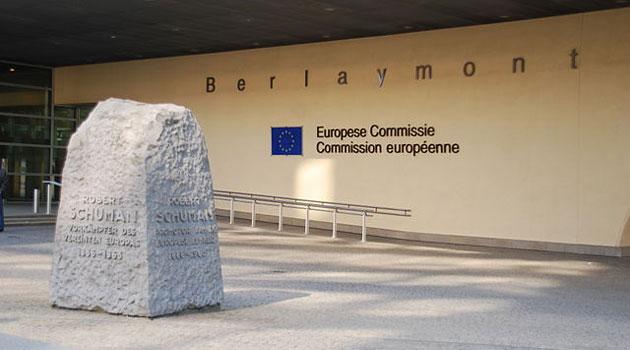Romani activists prevent EU funds from segregating Roma in Italy - construction of new ghetto stopped, but new plan has yet to fully guarantee inclusion

After the European Roma Rights Centre (ERRC) and local Romani activists intervened, the Calabria Region in Italy, which was counting on constructing (with EU funding) housing units for Romani families that would be segregated, has changed its plan. The European Commission (EC) started reviewing the case after the ERRC and local activists contacted them and the project has been adjusted - instead of installing a new ghetto, the Romani families must be integrated into mainstream, municipally-owned housing.
However, local activists are warning that the new version of the plan still has serious shortcomings. The ERRC has reported on the change.
The original plan counted on constructing a new “nomad camp” that would be segregated in the town of Lamezia Terme, into which approximately 100 Romani families who have been living in such a camp called Scordovillo since 1982 were meant to be relocated. Activists from the ERRC and the local Stop Ghettos Committee fiercely objected to the plan, warning the EC of the risk that EU funds would be abused for more ethnic segregation if the camp were to be constructed.
The Calabria Region adjusted the project at the instigation of the EC and the Romani activists and is now counting on integrating the families into municipally-owned “scattered housing”. “Public housing must not be a vehicle for more segregation” said the ERRC’s spokesperson, Jonathan Lee.
“Unfortunately, Italian authorities seem to be slow learners when it comes to ethnic segregation. Despite Italy’s many promises to the European Commission that the days of building discriminatory ‘nomad camps’ are over, here we found a plan to build a brand-new ghetto using EU funds. Thankfully, the vigilance of local human rights activists has made sure that this will not happen. It was Italian authorities who were responsible for putting Romani families in these ethnically segregated ‘nomad camps’ in the first place, so now it is Italian authorities who must be responsible for ensuring that they are rehoused in safe and integrated public housing,” said Lee.
The Calabrian Regional Council approved the original project on 15 March 2024. A budget in the amount of EUR 36 million was to have been divided into two parts: EUR 8 million for temporarily relocating the Romani families and providing support programs for their inclusion into education and employment, and EUR 28 million for the construction of 120 housing units in the newly-planned ghetto.
That construction officially started on 26 September 2024 through a public notice issued by the Calabria Region calling for proposals from third-sector entities. The Department of Health and Welfare of Calabria Region approved the notice and the contract was eventually awarded to the “Comunità Progetto Sud” (Community Project South) organization of Lamezia Terme.
After the ERRC and the Stop Ghettos Committee wrote to the EC, it called on the Calabria Region to explain the situation. In January 2025 the region adopted a new resolution overturning its previous decision and abandoning the construction of the ghetto.
Instead, the region pledged to implement the model of “scattered housing”, i.e., taking advantage of the existing housing fund or purchasing new apartment units with the aim of achieving the integration of the Romani families into such housing. Given the lack of municipally-owned social housing units in Lamezia Terme, ATERP, the regional public housing agency, published a call for the purchase of such housing units on 28 February 2025, with a deadline of 20 April 2025.
While the ERRC and the Stop Ghettos Committee welcome the overall progress from segregated to integrated housing plans, they are warning that the 28 February call contains essential shortcomings which could endanger its success. Above all, they are criticizing the exclusion of real estate agencies as brokers of the sales, as such agencies administer most of the real estate market in Lamezia Terme.
The ERRC and the Stop Ghettos Committee also find it problematic that the call privileges housing units which are isolated, spatially speaking, over apartment building units, which in their view contravenes the principle of “scattered housing” and prevents the effective social inclusion of the families concerned. The activists say similar errors have previously been repeated in the past in various other regions of Italy.
For that reason, the ERRC and the Stop Ghettos Committee are calling on the Calabria Region to rework their call for this housing purchase and to eliminate the obstacles preventing the real fulfillment of the goal of integrating the Romani families into Lamezia Terme.